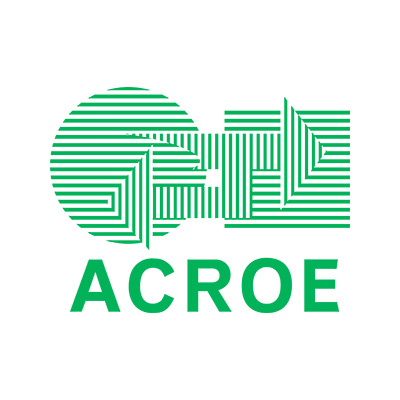ACROE
WebsiteThe ACROE-ICA group, ACROE for Association for Creation and Research on Expression Tools and ICA for Artistic Creation Engineering, covers the same global research, development and pedagogy project in computer music and computer animation.
ACROE was founded in 1976 by Claude Cadoz, Annie Luciani and Jean-Loup Florens at the Grenoble Polytechnic Institute (Grenoble INP) with the support of the Ministry of Culture and Communication.
The ICA laboratory as a research unit of Grenoble INP was established in 1999.
« Information and communication technologies and digital technologies have introduced powerful material and conceptual tools for artistic creation and opened up new and fundamental dimensions of exploration to art.
The invention of new tools, the changing modes of representation and communication of knowledge, and modes of action and perception profoundly alter the nature, form, content of artworks, as well as the ways of disseminating and sharing them. But more, there are the processes of their creation and those of creativity itself that are transformed.
It is then necessary to pose the problem of artistic creation in all its dimensions, at the very place where the development of the technological processes is simultaneous with the artistic creation and expression.
The engineer, the researcher and the artist must then be involved together. And because new technologies open up precisely such perspectives, technological invention, scientific discovery, artistic creation and their ways of learning must be able to blend into the same forge, within the same framework. »
Claude Cadoz, Annie Luciani, Jean-Loup Florens
Founders of ACROE, 1976
At ACROE-ICA, these founding principles are realized in four types of work:
- Scientific, technological and artistic research
- Artistic creation
- Artistic and scientific pedagogy
- Artistic and scientific valuation and dissemination,
They are available in the artistic disciplines grouped under the name « Instrumental Arts of Time »:
- Musical arts,
- Visual motion arts,
- Choreographic arts,
- Multisensory arts.
They are part of the areas:
- information and communication sciences and technologies,
- modelling, simulation and control sciences
- humanities and social sciences: perception and cognition sciences, art sciences (musicology, art history, philosophy…)
ACROE is the founder of the concept of mass-interaction physical modeling and simulation and force-feedback haptic devices with high number of degrees of freedom.
It designed CORDIS-ANIMA theory and formalism for modeling and interactive modular physical simulation.
It designed the software:
- GENESIS for the synthesis and simulation of sound by mass physical models – interactions
- MIMESIS for the synthesis and simulation of visual motion by mass physical models – interactions
- GravDyn and DYNAMé for visualizing movements produced by physical models
It developed a technology of force feedback haptic interaction, ERGON, which by its performance in precision, power and quality, is particularly suited to artistic and dexterous instrumental gestures.
It developed creation platforms:
- TELLURIS, for haptic multisensory real-time simulation
- Helicanthe, for modeling, simulation and multisensory diffusion haptic and multichannel
ACROE has to its credit 48 doctoral theses, huge number of international publications and more than 80 artistic works.
